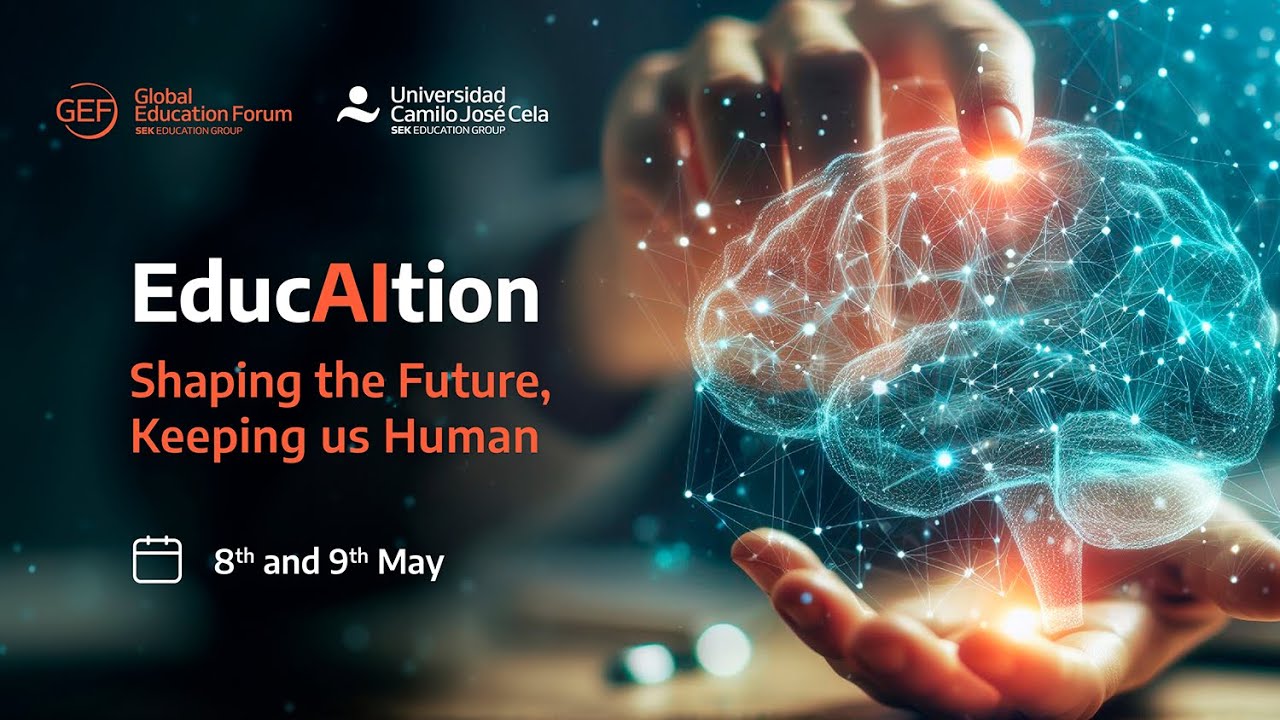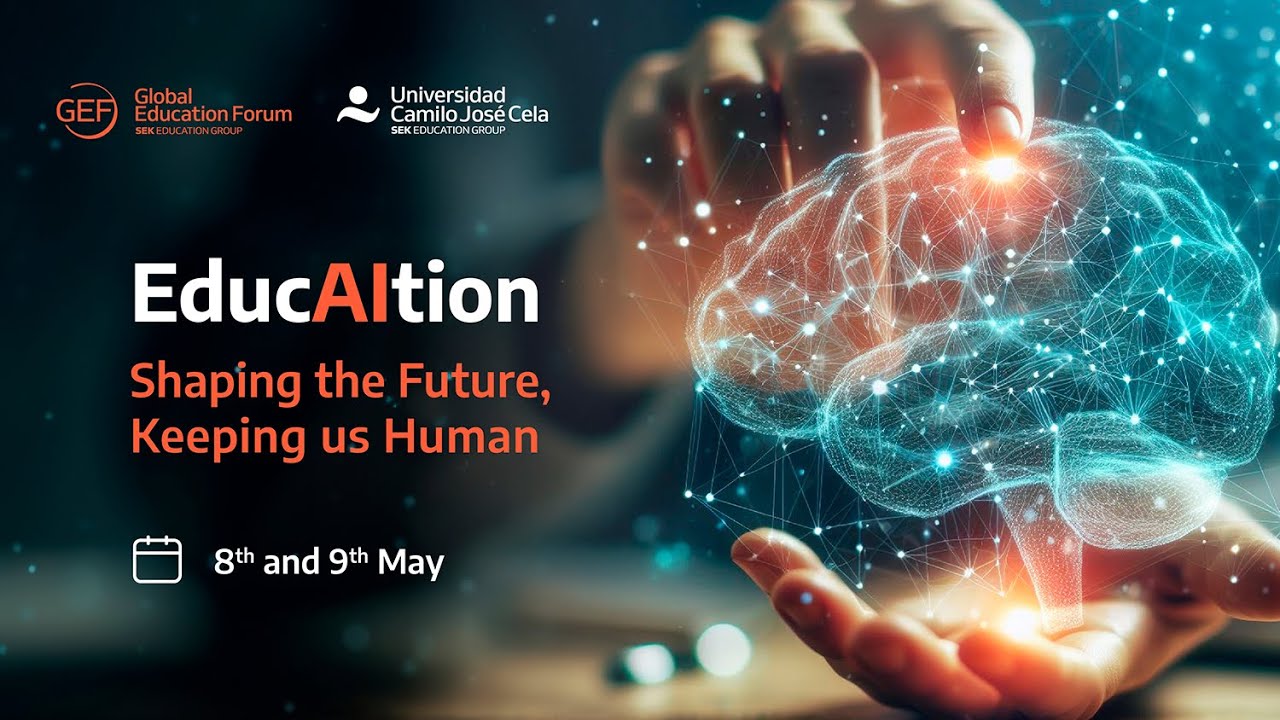GEF Madrid 2024: Financing Education in an AI era
Summary
TLDRThe panel discusses the role of AI in education, emphasizing the importance of smart investments, the flow of talent, and the challenges and opportunities AI presents for educational institutions. Key topics include the integration of AI into educational models, the importance of adaptability, and the potential for new revenue streams through AI. Experts share insights on balancing traditional methods with innovative approaches, the need for collaboration between universities and industry, and the significance of developing soft skills alongside technological proficiency. The conversation also touches on the evolving nature of education and the impact of AI on learners and educators.
Takeaways
- 💡 The importance of following the money in AI investments to understand the driving forces and future directions of technology.
- 🌐 Recognizing the difference between smart, strategic investments in AI and passive, opportunistic ones that may not yield long-term benefits.
- 💼 The necessity for investors to be patient and support entrepreneurs with space and time to innovate and develop AI solutions effectively.
- 🏫 The challenges faced by educational institutions in adopting AI, including the need to balance direct and indirect costs and to choose reliable AI tools.
- 🛠️ The potential of AI to transform not just the educational experience but also administrative tasks, freeing up educators to focus more on students.
- 🌟 The emphasis on incremental investments in AI to understand its utilization and impact before fully committing resources.
- 🌱 The idea that building new educational institutions from scratch may be easier than transforming existing ones, highlighting the challenges of digital transformation.
- 🌍 The international dimension of AI talent flow, suggesting that the concentration of AI expertise is heavily skewed towards certain regions, impacting global educational strategies.
- 🤝 The call for better collaboration between universities, industries, and investors to align the skills developed with market needs and to co-create AI skilling strategies.
- 🎓 The potential for universities to spin off certain capabilities and involve investors in these ventures, creating new revenue streams and innovation hubs.
- 🎮 The role of gamification in learning and the potential for AI to make education more engaging and personalized, possibly changing the traditional educational model.
Q & A
What is the central theme of the panel discussion in the script?
-The central theme of the panel discussion is the exploration of AI's impact on education, investment opportunities, and the future of learning, with a focus on understanding the financial aspects and strategic decisions behind AI technology in education.
What does the panel suggest as a key strategy for investors when it comes to AI?
-The panel suggests that investors should focus on backing smart people and being flexible, patient, and curious. They should look for entrepreneurs who understand the inflection point of AI and are willing to let the technology develop without applying undue pressure.
How does the panel view the importance of understanding the flow of talent in relation to AI development?
-The panel believes that the flow of talent is as important as the flow of capital in AI development. They highlight the concentration of AI talent in certain regions and the need to consider this when making investment decisions or transforming educational institutions.
What does the panel discuss regarding the challenges of transforming existing educational institutions versus building new ones?
-The panel discusses that it is easier to build a new educational institution from scratch rather than transforming an existing one. This is due to the significant challenges that come with changing established systems and the resistance to adopting new technologies.
How does the panel address the issue of bias and inaccuracies in AI tools, such as plagiarism detection tools?
-The panel acknowledges the issue of bias and inaccuracies in AI tools and suggests that investors and educational institutions need to be cautious and discerning when adopting such technologies, ensuring they are reliable and not just superficial AI plugins.
What advice does the panel give to educational institutions looking to invest in AI?
-The panel advises educational institutions to make incremental investments in AI to understand its utilization better. They should focus on enhancing student experience, well-being, and academic performance, as well as freeing up teachers' time for more meaningful interactions with students.
How does the panel discuss the potential for universities to spin off certain capabilities to create new revenue streams?
-The panel suggests that universities could spin off certain capabilities, such as AI technologies or filters, to create new revenue streams. They could potentially offer these as services to other institutions or investors, fostering innovation and additional income.
What does the panel see as the future role of universities in the context of AI and personalized learning?
-The panel believes that universities will continue to play a critical role in community building and facilitating relationships, even as AI enables personalized learning at scale. They should focus on incorporating AI in a smart and ethical way to survive and thrive in the changing educational landscape.
How does the panel view the crossover between entertainment, health, and education in the context of AI?
-The panel sees a significant potential for crossover between these sectors, with AI serving as a connector. They highlight the importance of engagement in learning and suggest that gamification and other interactive methods can make education more enjoyable and effective.
What insights does the panel provide on the importance of soft skills and emotional intelligence in the age of AI?
-The panel emphasizes the importance of soft skills and emotional intelligence, stating that these are the qualities that will set humans apart in an AI-driven world. They suggest that early childhood education should focus on developing these skills, as they are crucial for adaptability and success in various fields.
Outlines

This section is available to paid users only. Please upgrade to access this part.
Upgrade NowMindmap

This section is available to paid users only. Please upgrade to access this part.
Upgrade NowKeywords

This section is available to paid users only. Please upgrade to access this part.
Upgrade NowHighlights

This section is available to paid users only. Please upgrade to access this part.
Upgrade NowTranscripts

This section is available to paid users only. Please upgrade to access this part.
Upgrade NowBrowse More Related Video

GEF Madrid 2024: Financing Education in an AI era

[FULL] Sambutan Gibran Bicara Soal Perkembangan Digital & Artificial Inteligence di Binus University

GEF Madrid 2024: Navigating AI Legal Frontiers

High-Paying Jobs Without A Degree - IITian Shares Skills To Learn

GEF Madrid 2024: Reporting the Future: The Impact of AI on Education Journalism

What any university should be thinking right now about AI
5.0 / 5 (0 votes)